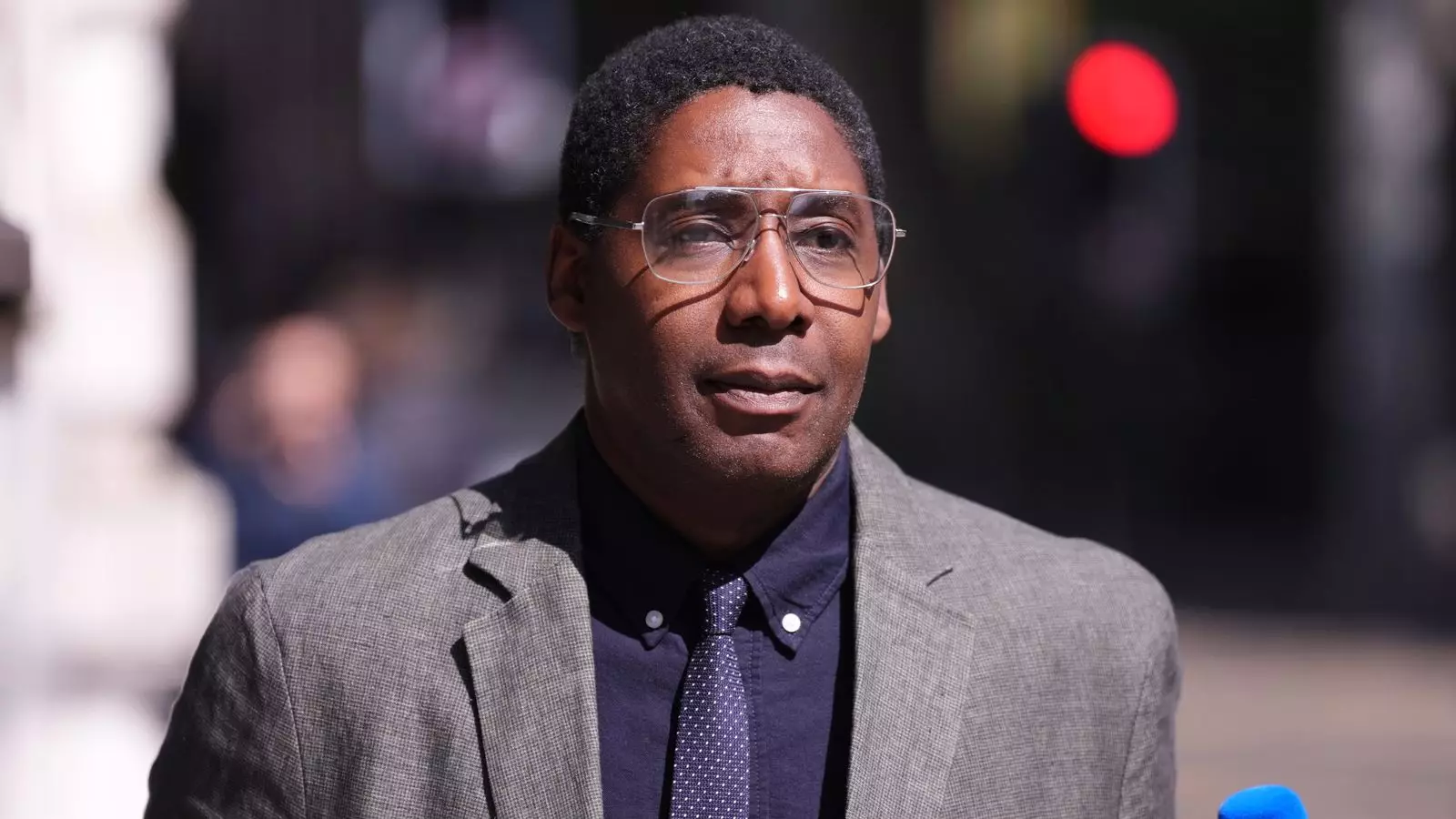In a shocking turn of events that shakes the very foundation of the art community, Oghenochuko Ojiri, known for his appearances on popular television shows like Bargain Hunt and Antiques Road Trip, has been sentenced to two and a half years in prison. The charges stem from his failure to report the sale of approximately £140,000 worth of artworks to Nazem Ahmad, a notable figure with alleged ties to Hezbollah, a designated terrorist organization in the UK. This incident serves not just as a legal case but as a moral and ethical reckoning for the art sector.
The depth of Ojiri’s transgressions raises vital questions about complicity within the art industry. It is often romanticized as a haven for creativity and cultural expression, yet, as illustrated by this case, it has dark undercurrents that demand accountability. The evidence presented revealed that Ojiri knowingly engaged in transactions with Ahmad, despite being fully aware of the suspect’s background. His actions exemplify a disconcerting prioritization of profit over the responsibility that comes with being in a position of public trust.
Behind the Veil: The Art Market and Its Complications
Ahmad, the Lebanese businessman described in court as a “prominent financier” for Hezbollah, is no stranger to the art world. With an extensive collection featuring masterpieces from renowned artists such as Pablo Picasso and Andy Warhol, Ahmad has been able to leverage art as both a cultural asset and a potential vehicle for money laundering. This incident lays bare the vulnerabilities in an art market that often operates without rigorous scrutiny. The court proceedings unearthed a chilling reality: the art sector can be exploited by shadowy figures to further illicit agendas.
Ojiri’s assertion that he could not “risk selling directly to him” implies an acute awareness of the ethical risks involved, yet this did not prevent him from proceeding with the sales. This duplicity exposes a troubling trend where financial gain clouds ethical judgment. Critically, it raises the question about the moral obligations of those operating within artistic spheres. How many more are willing to turn a blind eye in exchange for financial advancement? Ojiri’s case serves as a wake-up call, urging art dealers and professionals to take proactive measures not merely in adherence to the law but in alignment with ethical practices as well.
The Judgment: A Necessary Reckoning
Mrs. Justice Cheema-Grubb’s sentencing of Ojiri reflects more than just repercussions for him personally; it represents a broader indictment of an industry plagued by moral ambiguity. The judge remarked on Ojiri’s “shameful fall from grace” as a person of public influence, particularly someone who should serve as a role model within the arts. The notion that he had a duty to report suspicious activity but chose financial benefit instead should ring loud in the ears of all those in similar positions of privilege.
Central to the discourse surrounding this case is the role of personal and corporate ethics in the midst of the pursuit of success. The judge’s assertion that Ojiri “elected to balance the financial profit and commercial success” against his moral obligations cannot be overstated. In a world increasingly dictated by financial metrics, it is increasingly evident that individuals must cultivate professional integrity—or risk complicit in actions that not only endanger lives but also tarnish entire sectors.
The Consequence of Inaction: Lessons for the Future
Furthermore, the case is a stark reminder that ignorance is not a defense. Commander Dominic Murphy of the Metropolitan Police’s counter-terrorism command indicated that Ojiri’s case represents a groundbreaking precedent. The prosecution not only seeks to punish but also to send a cautionary message to all art dealers: complicity can lead to dire consequences.
As we navigate an ever-complex world where art intersects with finance and politics, one can only hope that this moment acts as a catalyst for change, urging industry professionals to reevaluate their responsibilities. The art world is a space ripe for ethical introspection, and it is time for those within it to step away from the shadows of ignorance and greed, embracing a path illuminated by integrity and accountability.

Leave a Reply